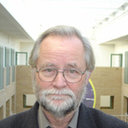Filter By
Individuals
 Data Projects Involved:1
Data Projects Involved:1 Vendors Involved:0
Vendors Involved:0Born in Diessen, Thomassen obtained his MA in Sociology in 1968 at the Tilburg University, where in 1976 he also obtained his PhD in the Social Sciences.[4] In 1968 he started his academic career as assistant professor at the Tilburg University. After his graduation in 1977 he was appointed Professor of Political science at the University of Twente, where he served the rest of academic career. He was Dean of the faculty of Political science in the years 1985–87 and 1993–93. Over the years he has been Visiting Professor at the University of Michigan, Harvard University, Mannheim University, European University Institute and Australian National University.[4] In the years 1986–87 and 2002–03 he was fellow at the Netherlands Institute for Advanced Studies in the Social Sciences (NIAS). Since 1991 he is member of the Royal Netherlands Academy of Arts and Sciences.[4] His research interests include "Democratic theory, political representation, electoral research and legitimacy in the European Union."[5]
 Data Projects Involved:1
Data Projects Involved:1 Vendors Involved:0
Vendors Involved:0After completing his master's degree in social psychology and group development at Columbia University and completing his rabbinical studies, Schwartz received his Ph.D. in social psychology from the University of Michigan, and subsequently taught in the sociology department of the University of Wisconsin–Madison, and in 1973 became a professor. From 1971 to 73, Schwartz was a visiting lecturer in the department of psychology at the Hebrew University. In 1979, Schwartz moved to Israel with his wife and three children. He joined the department of psychology at the Hebrew University, where he holds the post of Leon and Clara Sznajderman Professor Emeritus of Psychology. He is now retired, but continues his research activity, as well as developing and promoting his Basic Human Values Theory. During the 1970s and 1980s, Schwartz was following the studies of Geert Hofstede about human values and built upon them in his research on pro-social and altruistic behavior. His research has since included studies on the development and consequences of a range of behavioral attitudes and orientations, such as religious belief, political orientation and voting, social group relations, consumer behavior, as well as the conceptualization of human values across cultures. Schwartz is a fellow of the American Psychological Foundation and is a member of the American Sociological Foundation, European Association of Experimental Social Psychology, the Israel Psychological Association, the Society for Experimental Social Psychology, and the Society for Personality and Social Psychology. He is president of the International Association for Cross-Cultural Psychology. He coordinates an international project in more than 70 countries that studies the antecedents and consequences of individual differences in value priorities and the relations of cultural dimensions of values to societal characteristics and policies. His value theory and instruments are part of the ongoing, biannual European Social Survey.
 Data Projects Involved:1
Data Projects Involved:1 Vendors Involved:0
Vendors Involved:0My main research area is social stratification - including studies of educational inequality, the class structure, and social mobility. My interest in intergenerational processes also incorporates the study of children's well-being. I am also engaged in studies of ethnic stratification. I am the PI for Sweden in a comparative project on the integration of ethnic minority school children (CILS4EU), led by Frank Kalter, Universität Mannheim. As I am responsible for the Swedish Level-of-Living Survey (LNU) (Level-of-Living (LNU)), I have an interest in research in the level and distribution of welfare.





